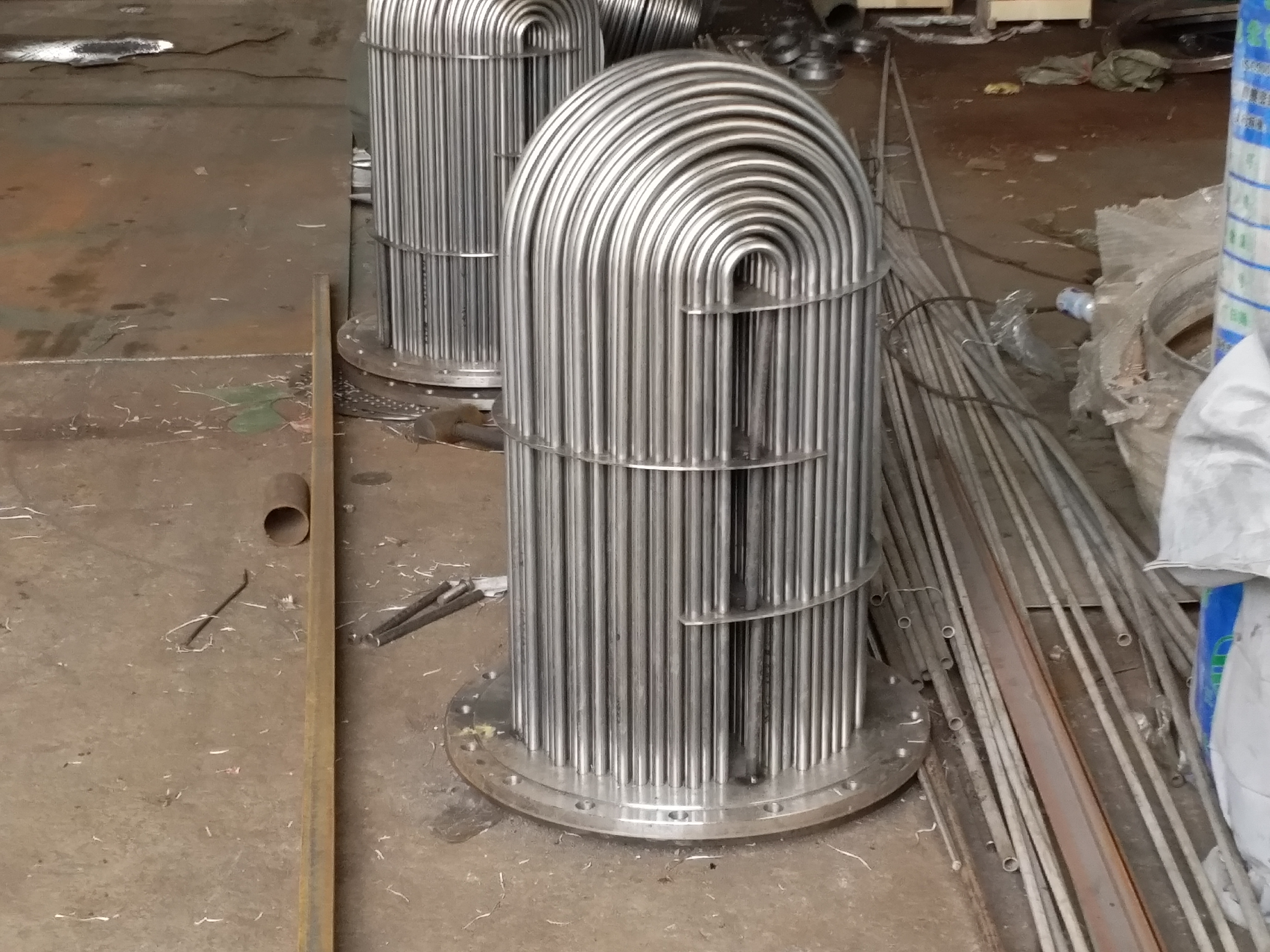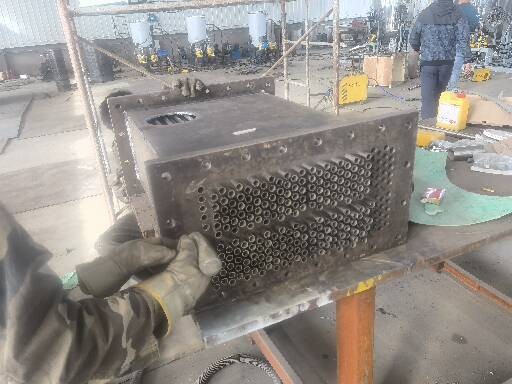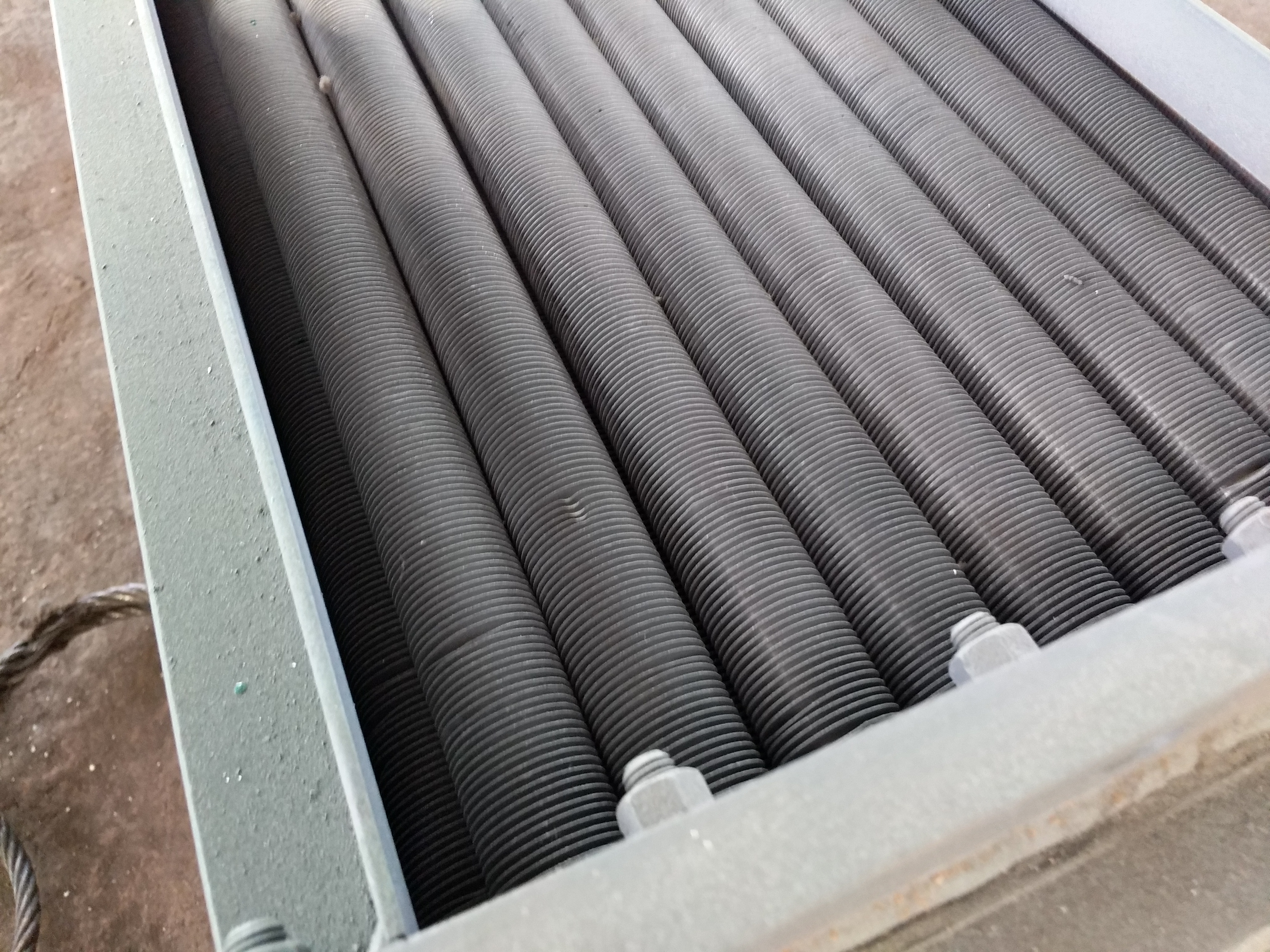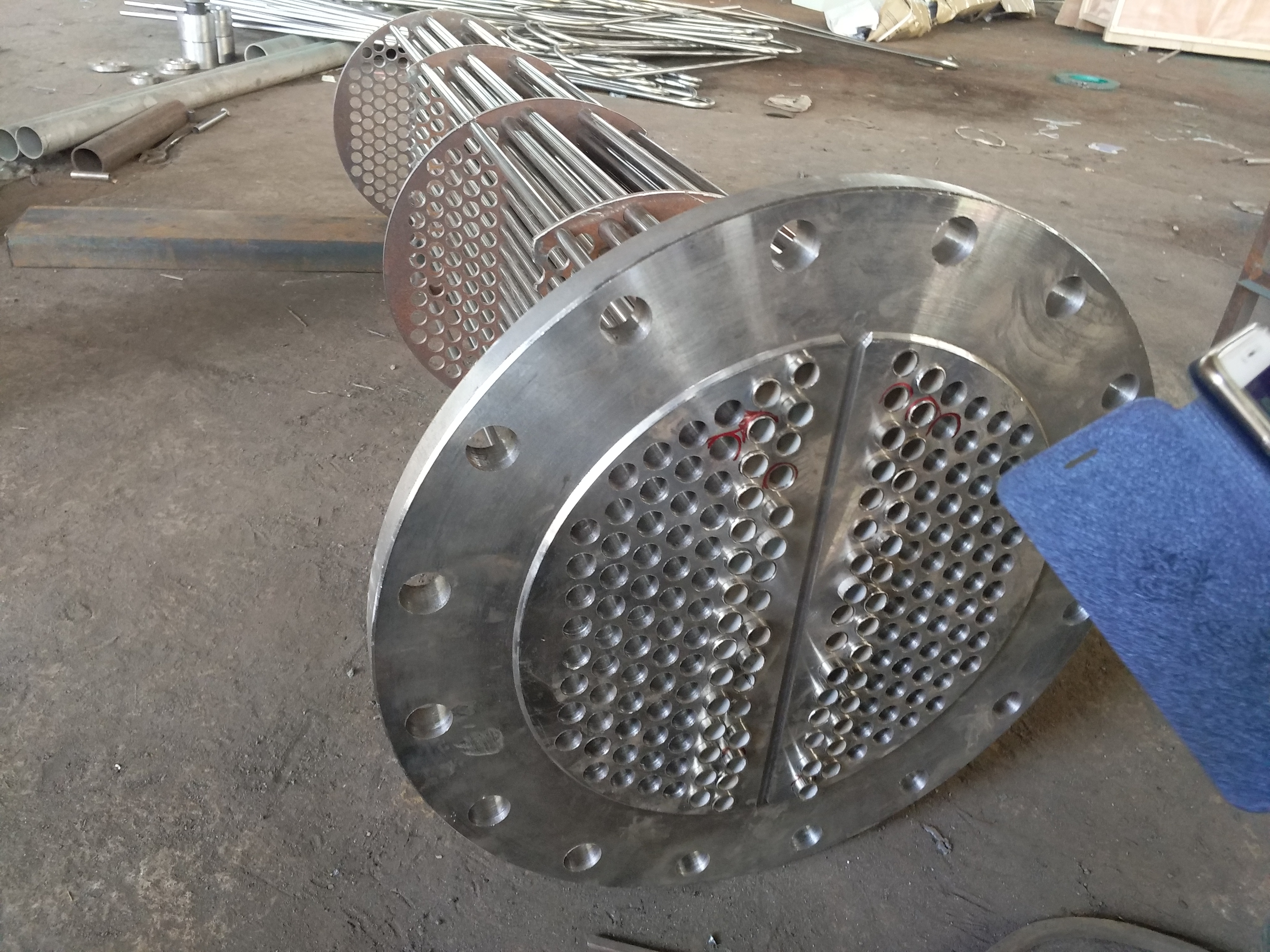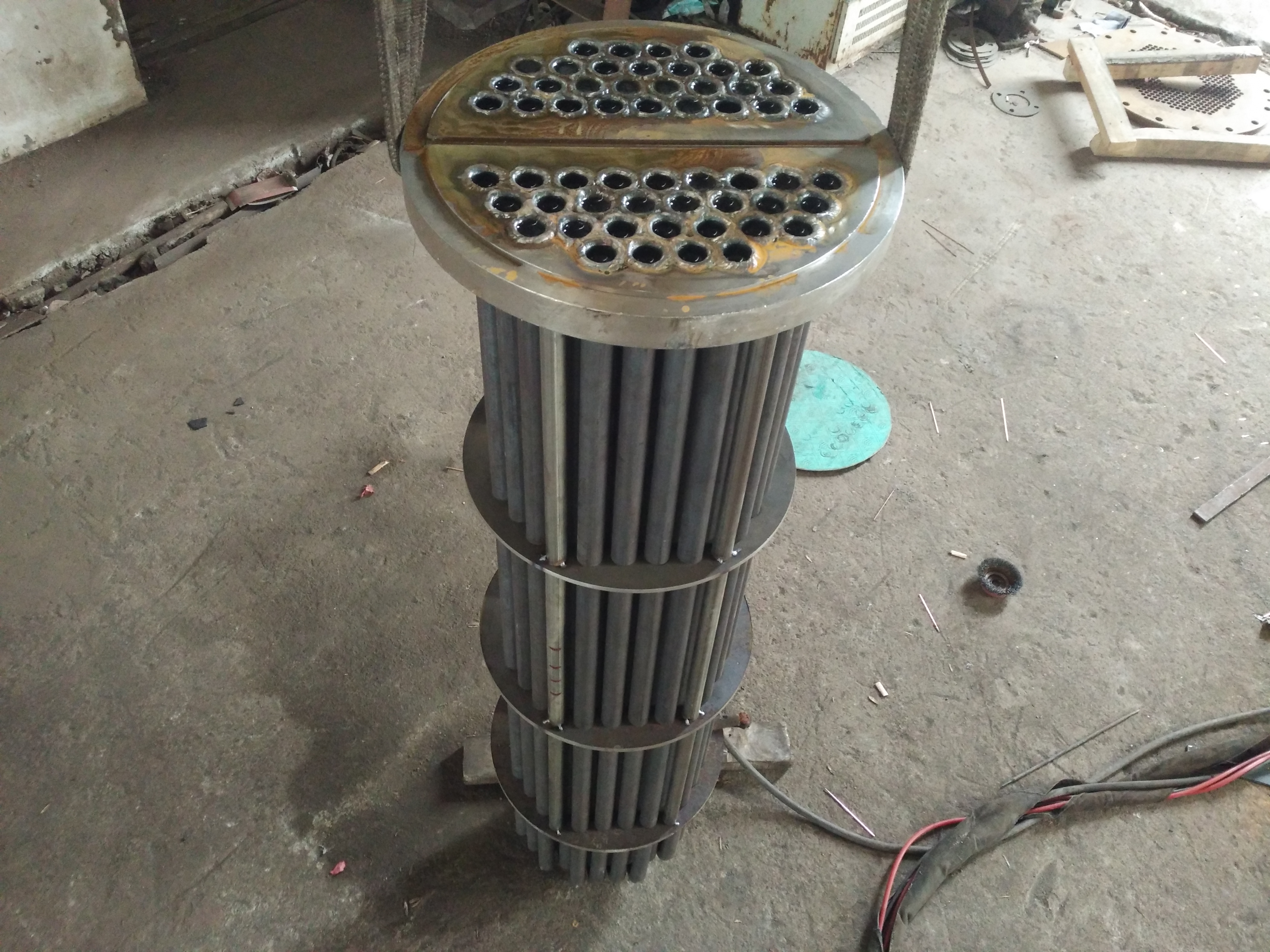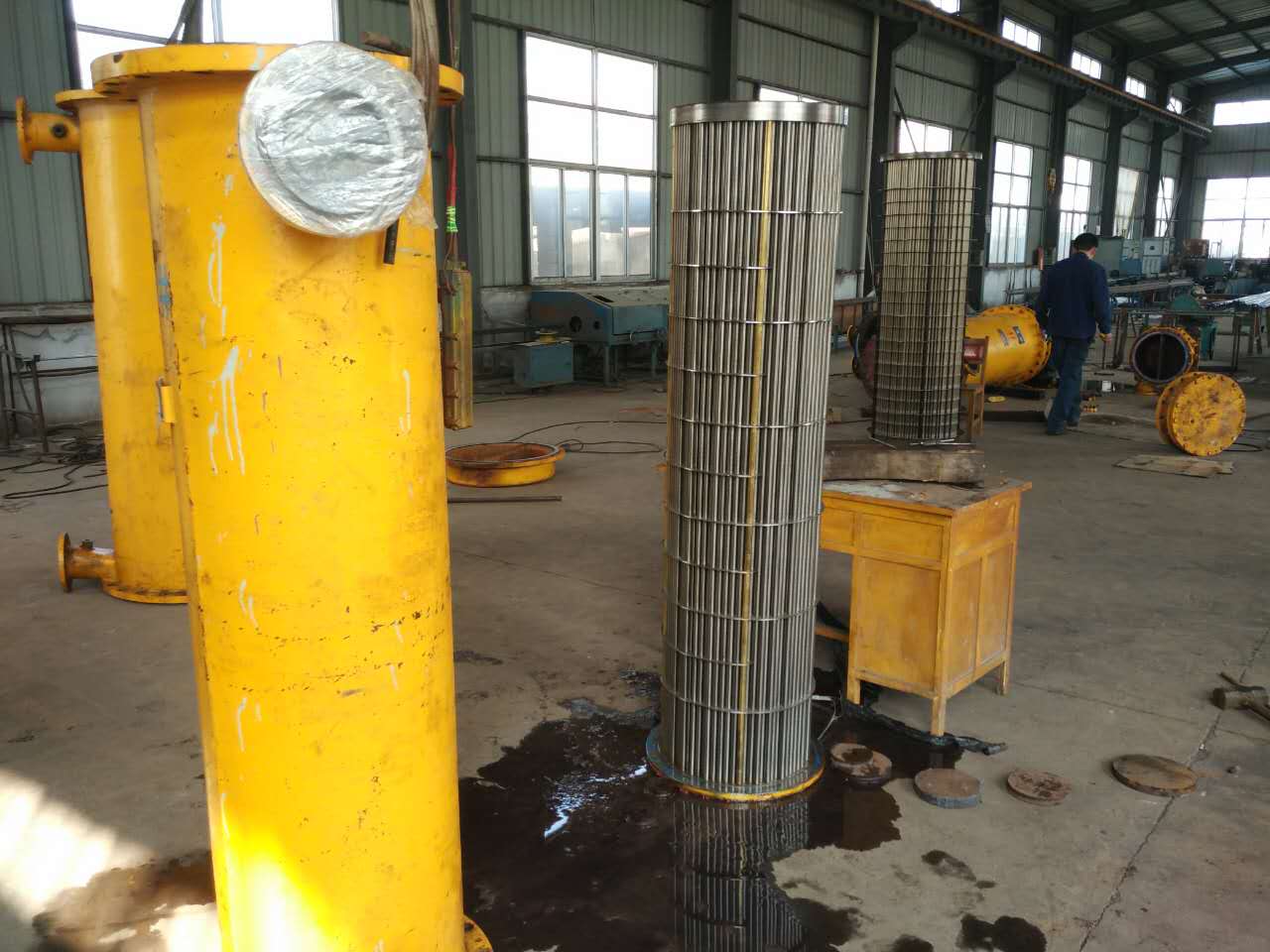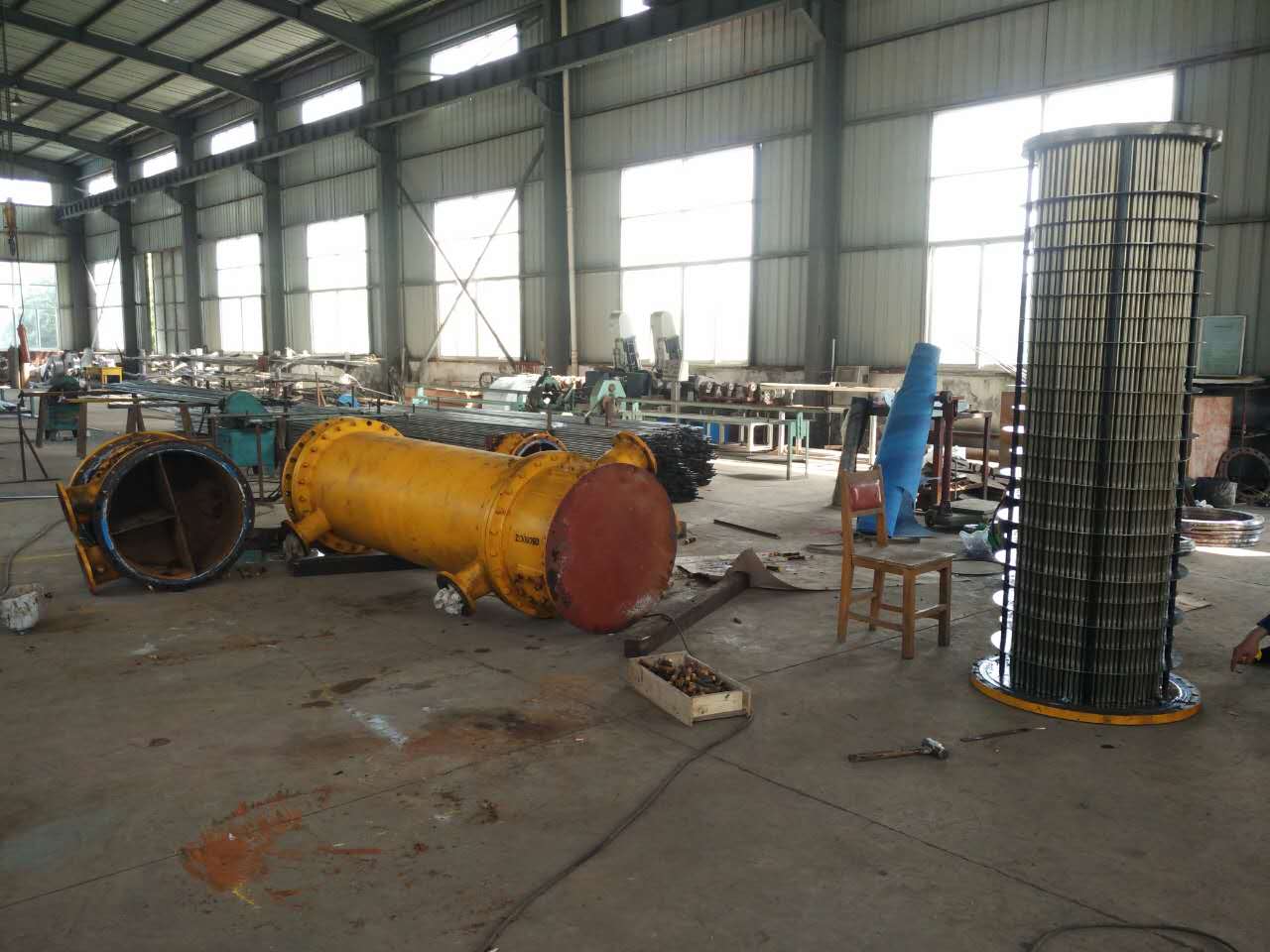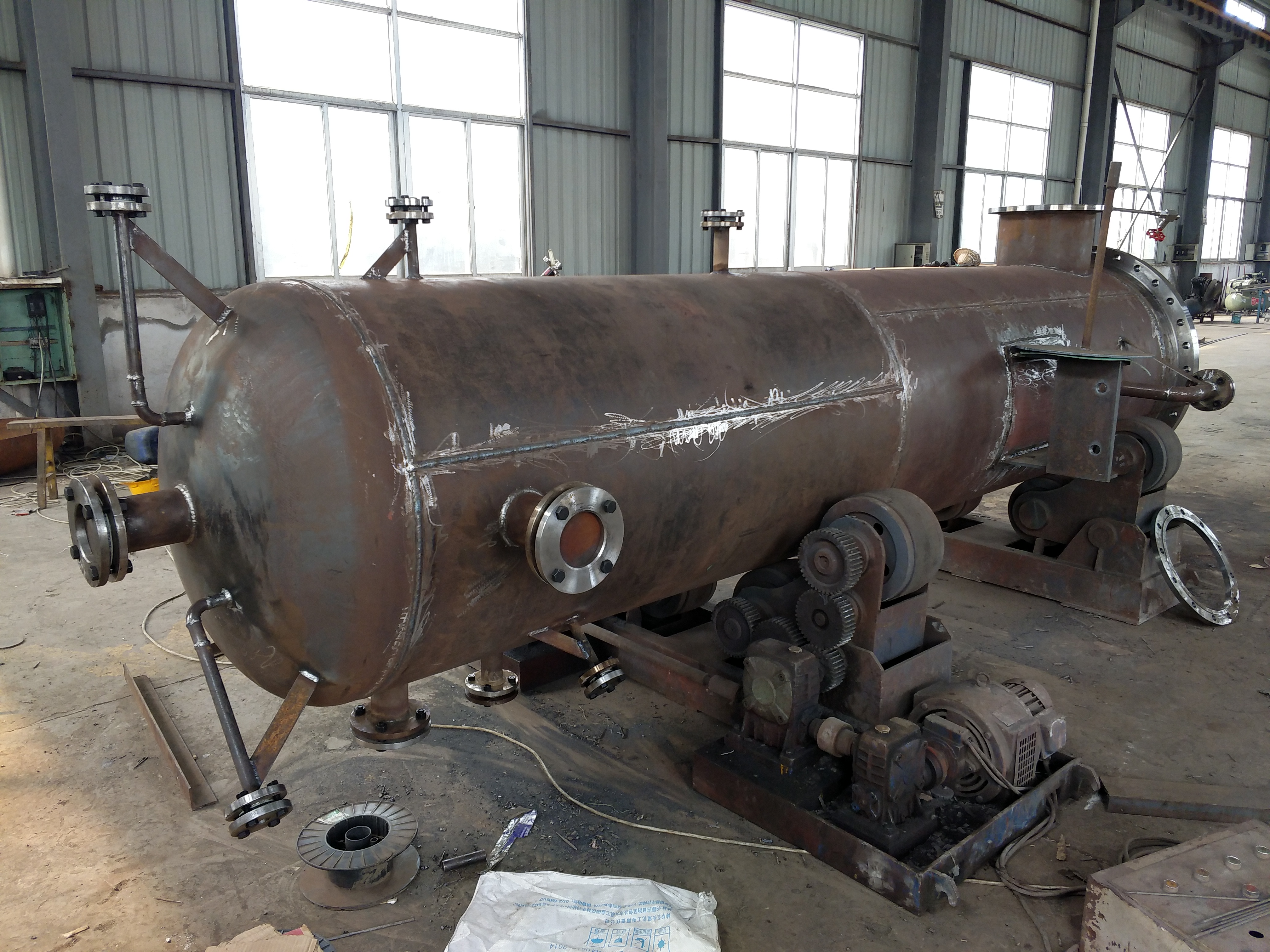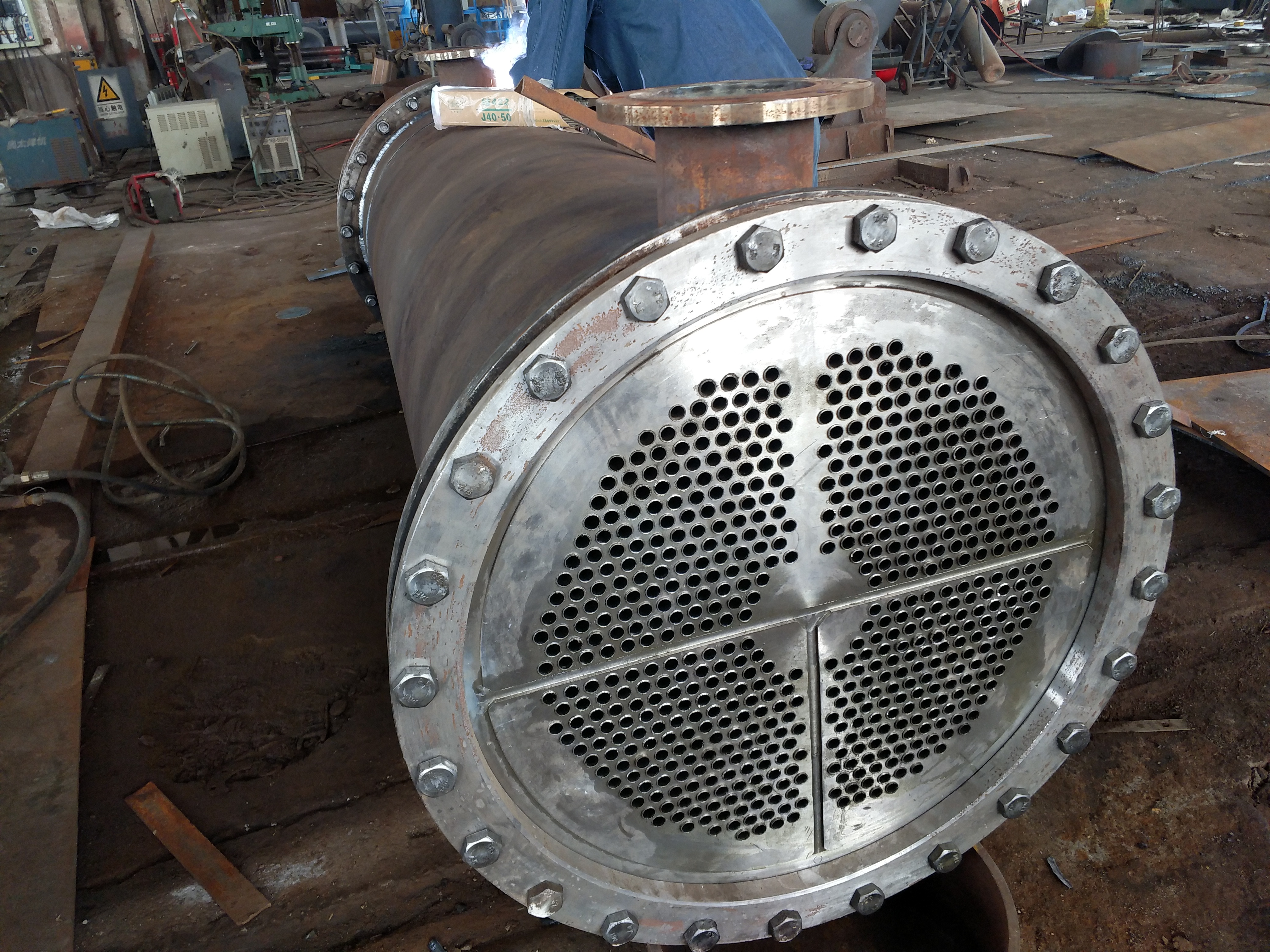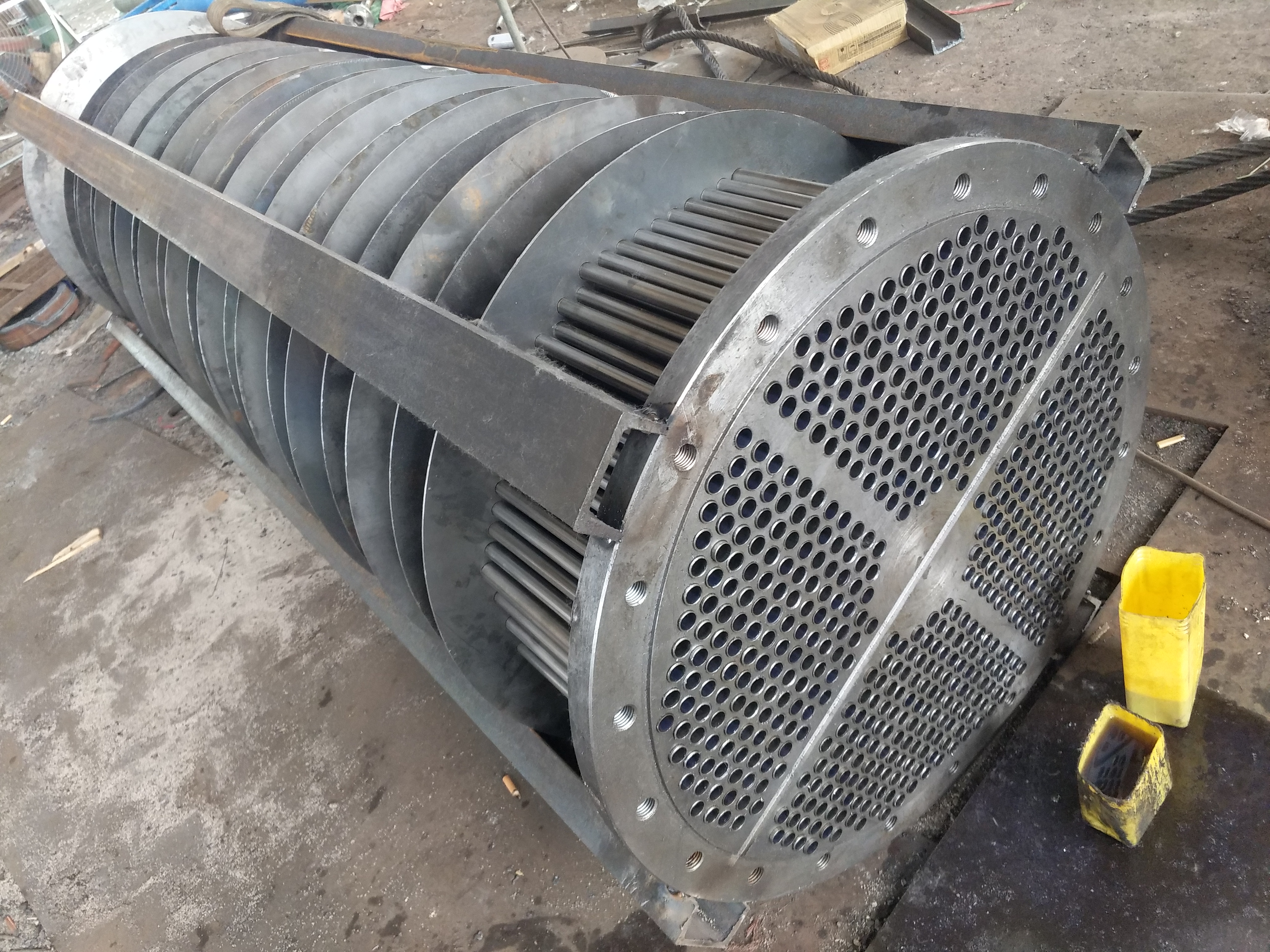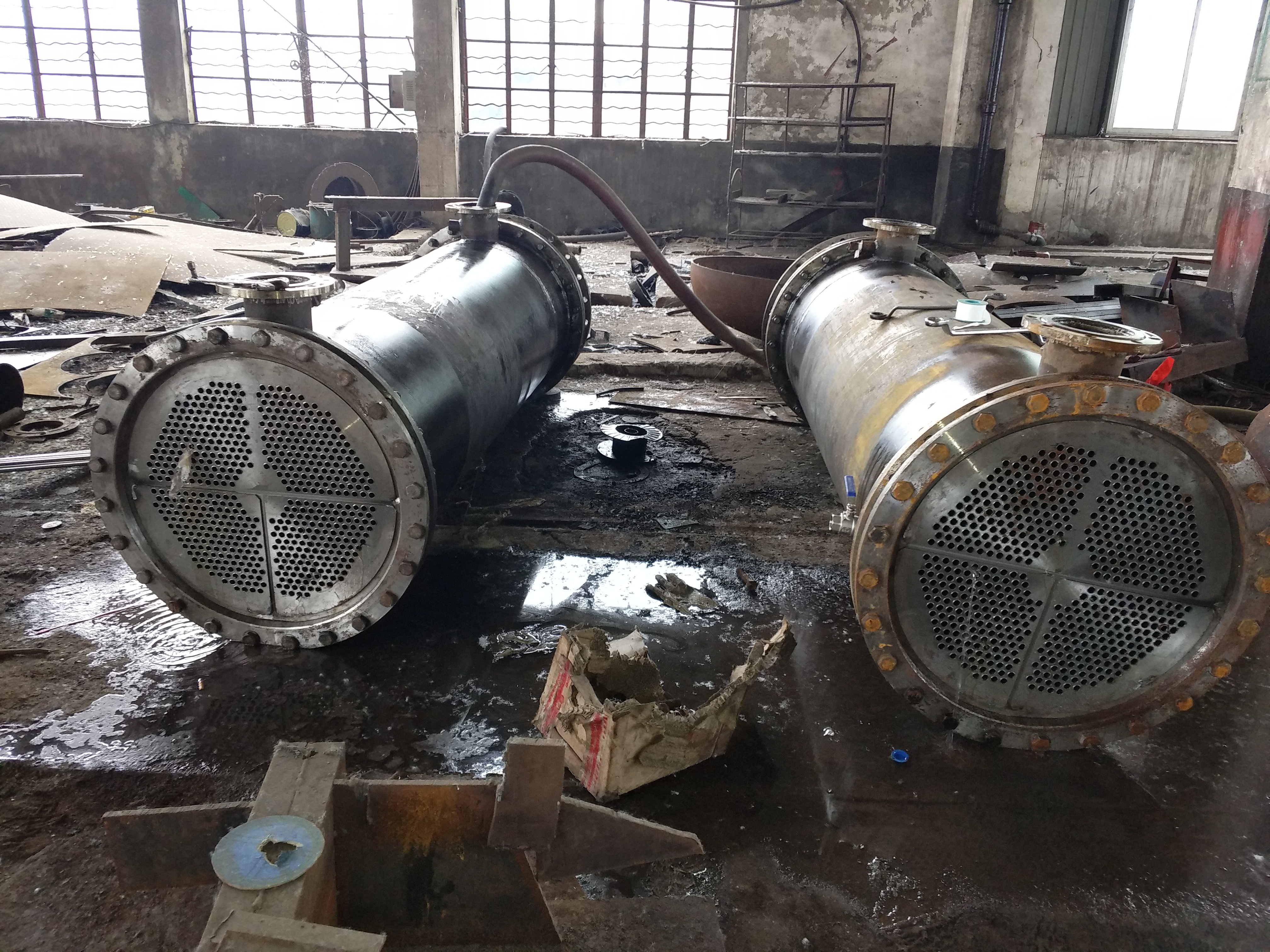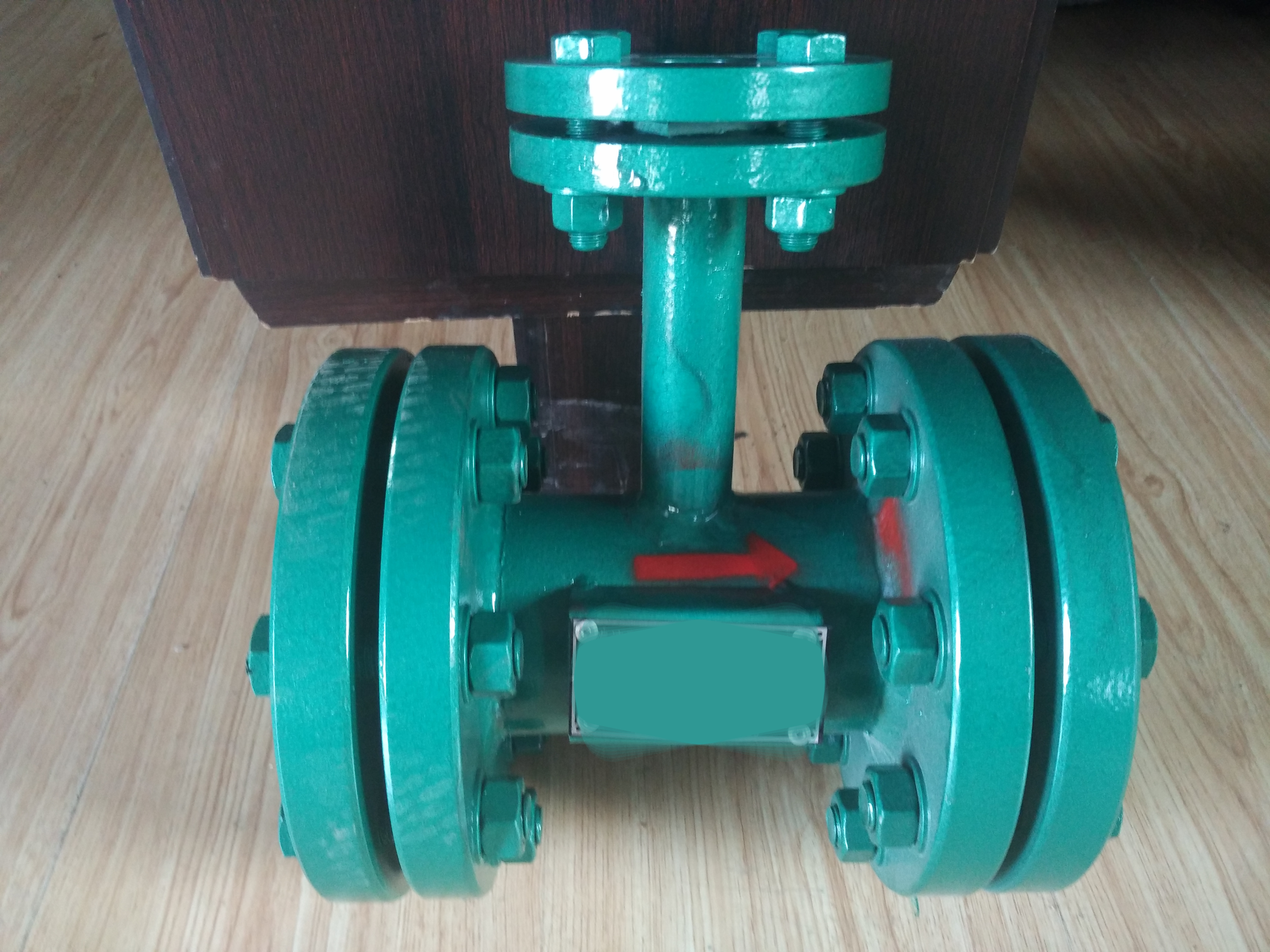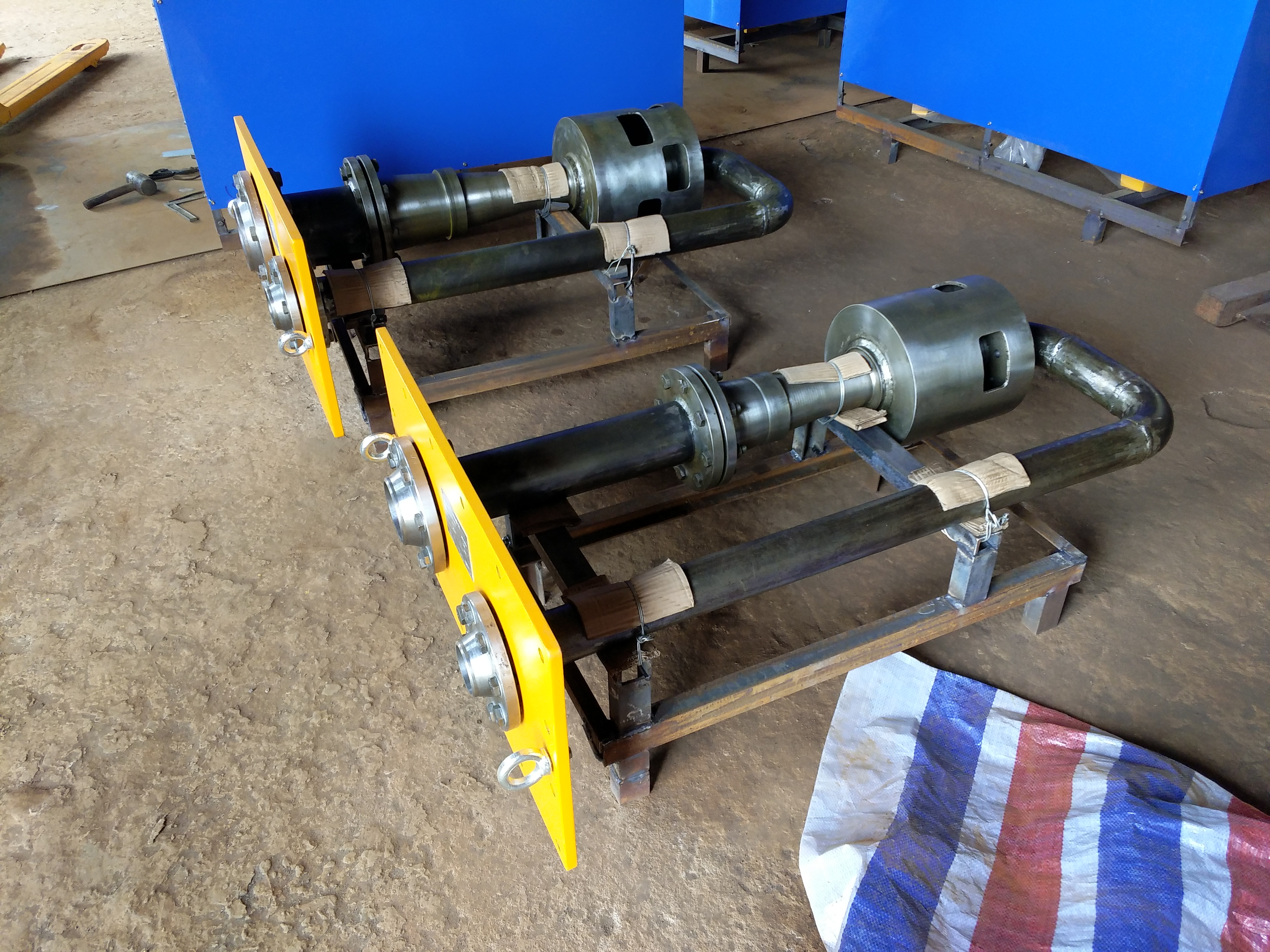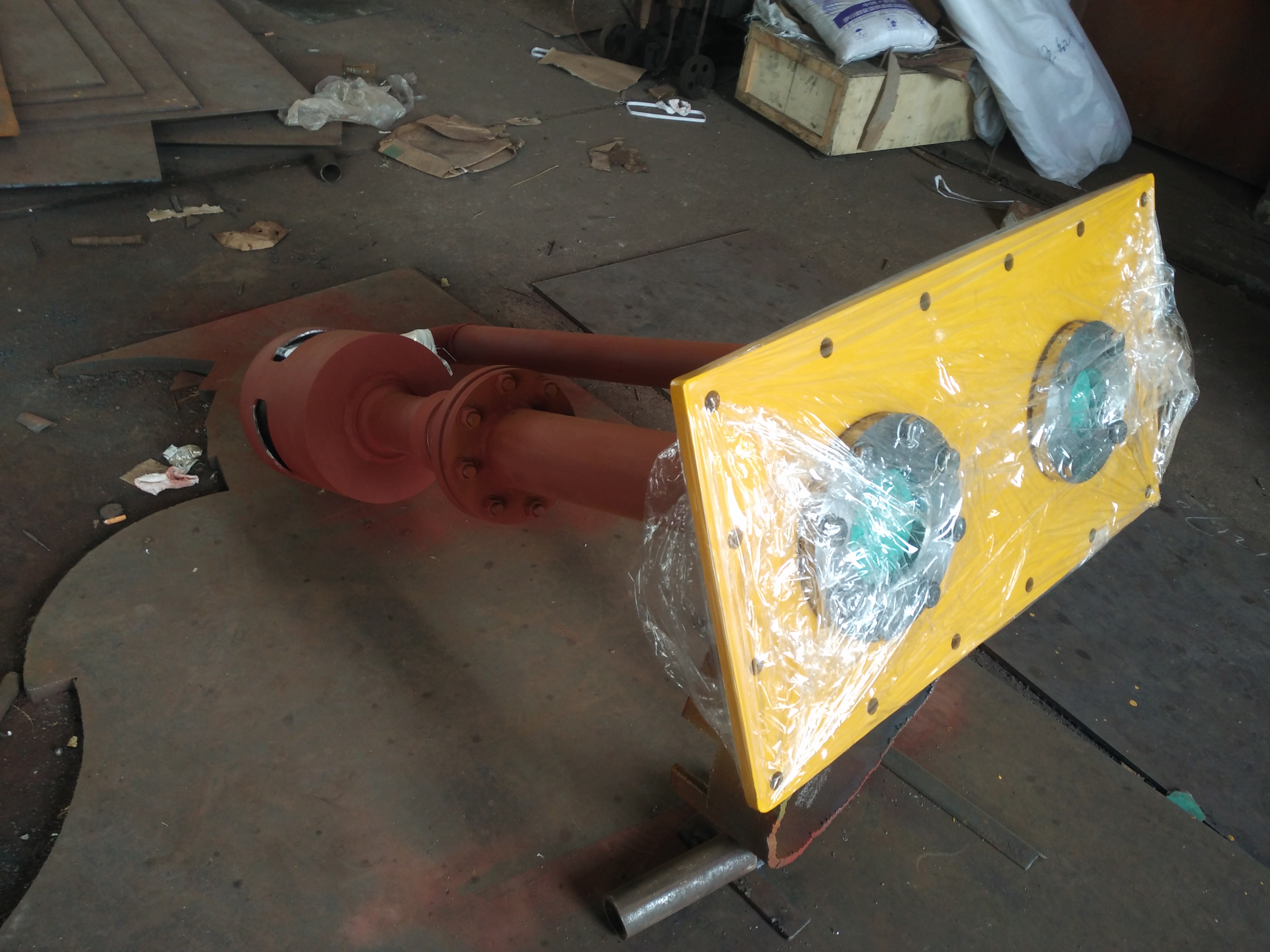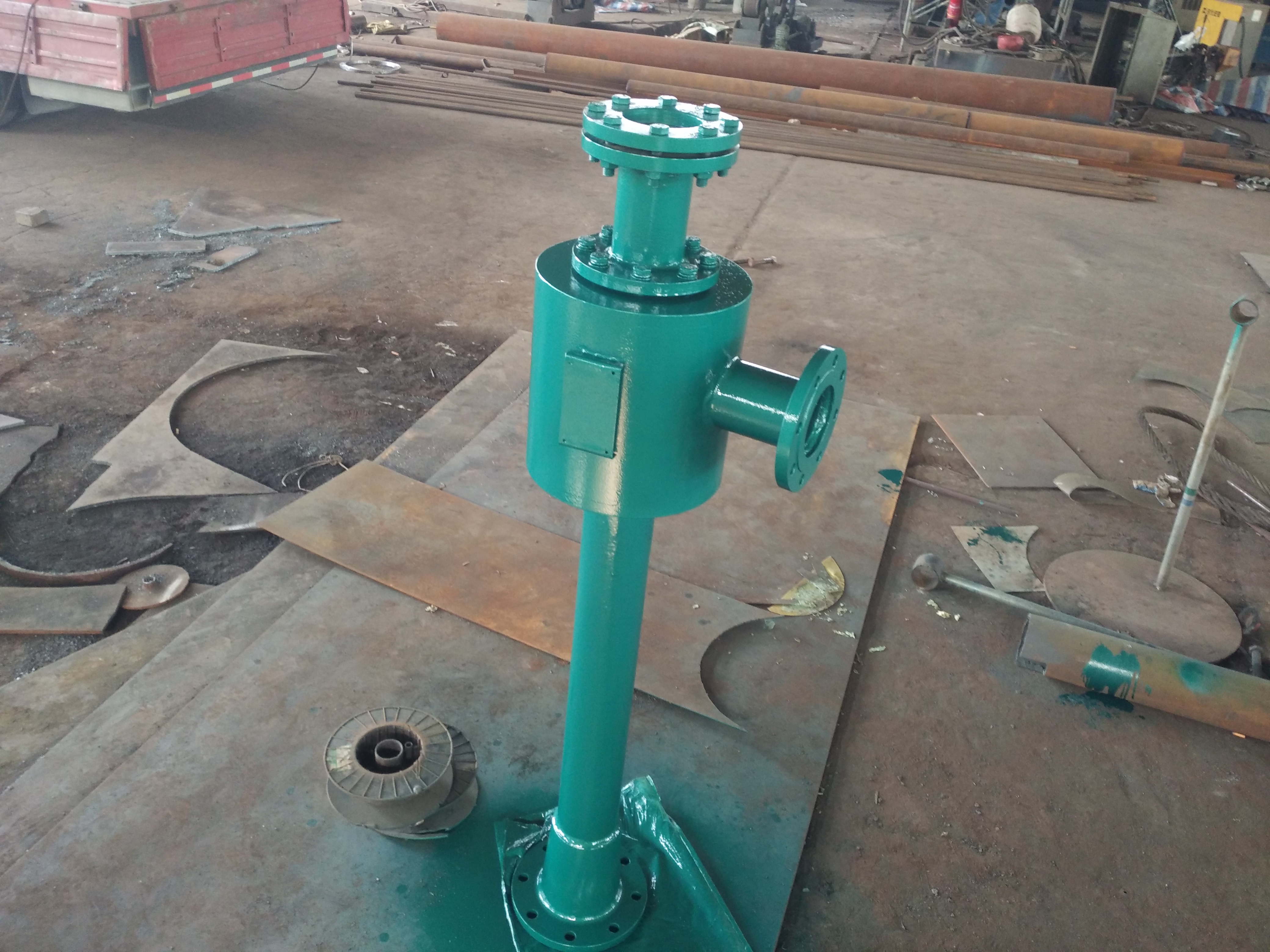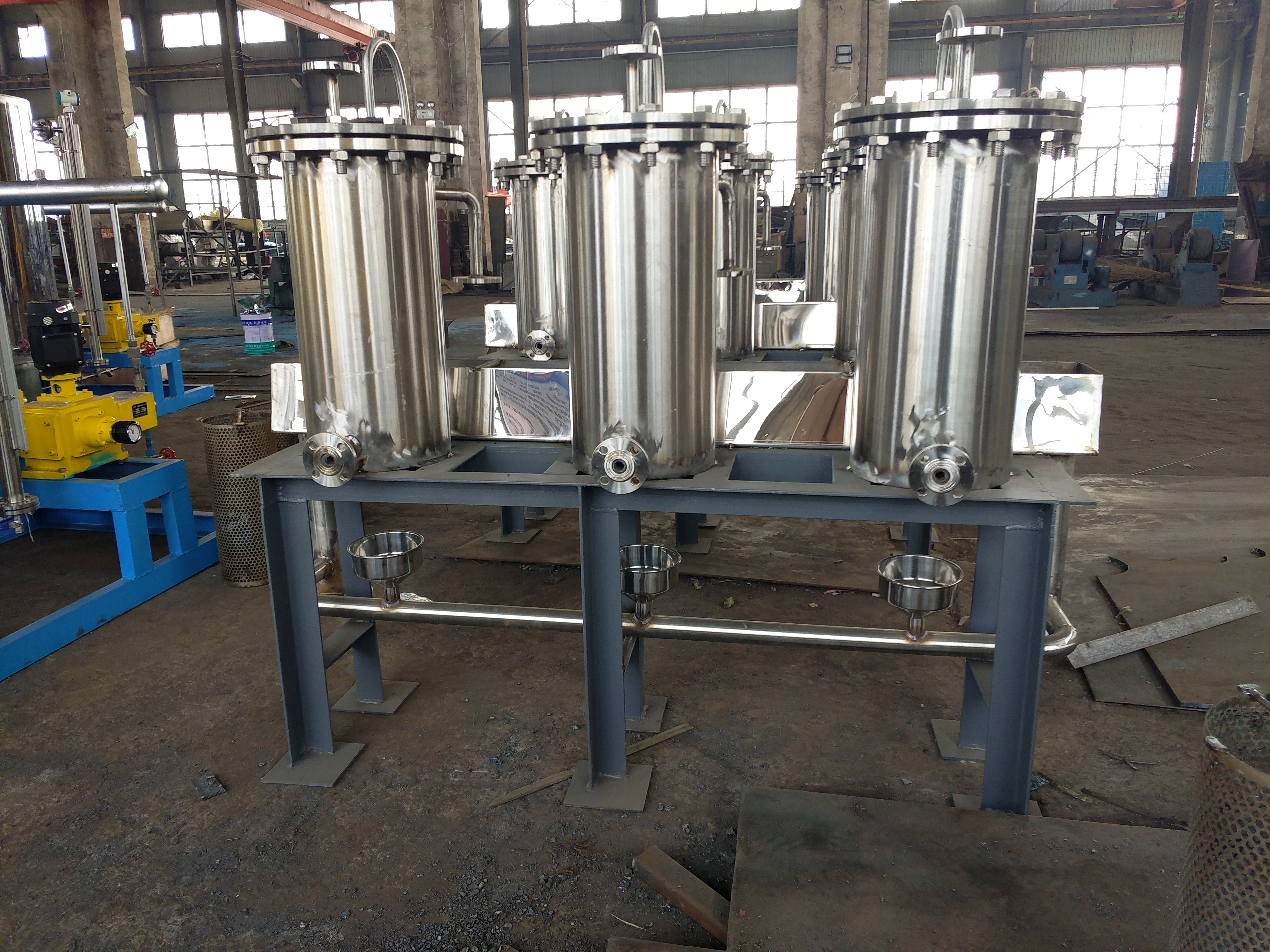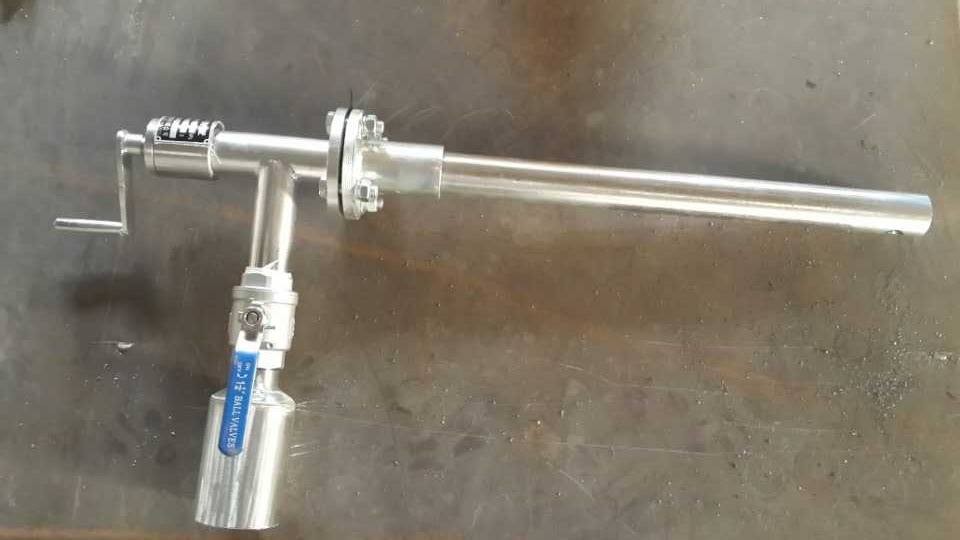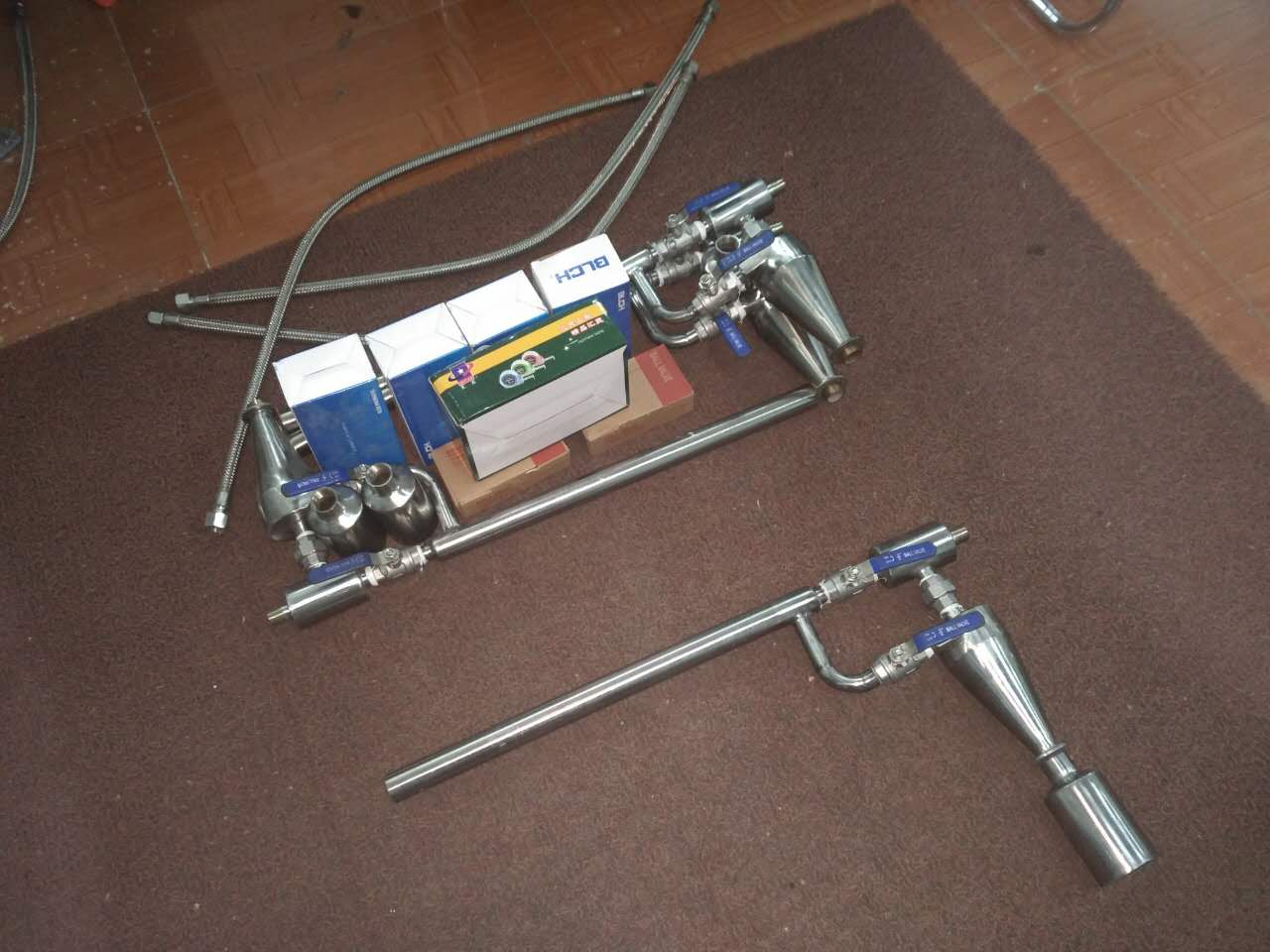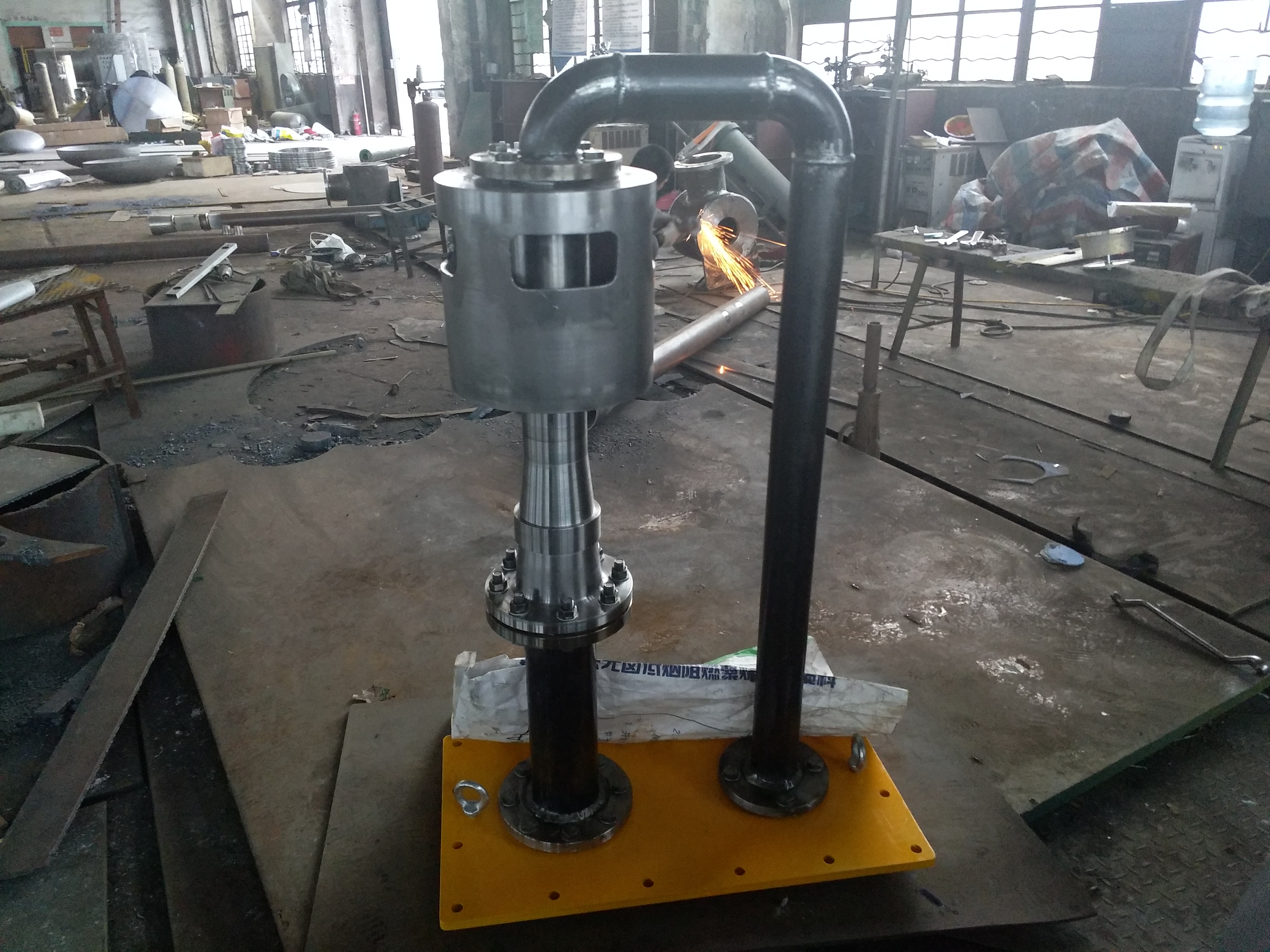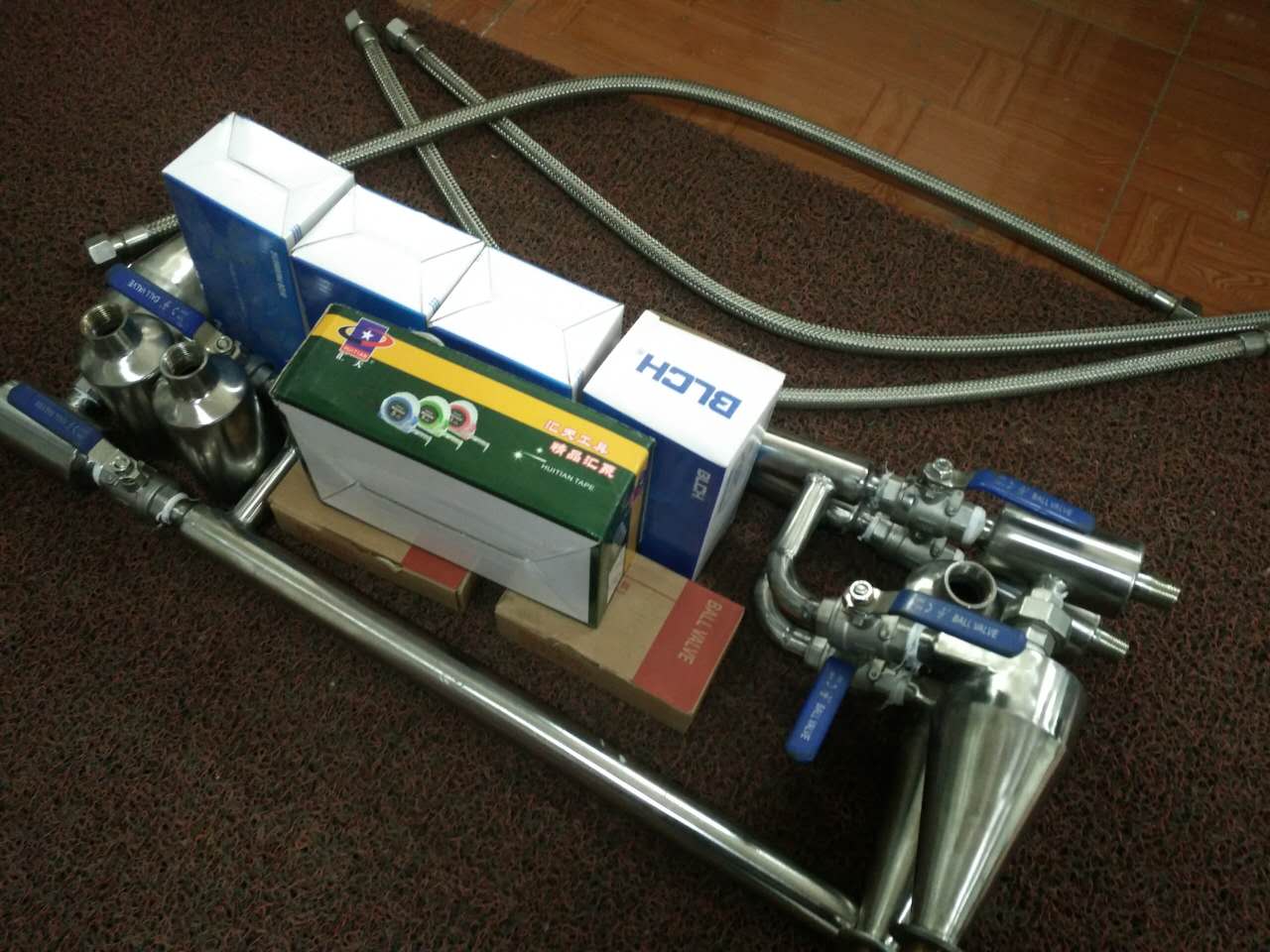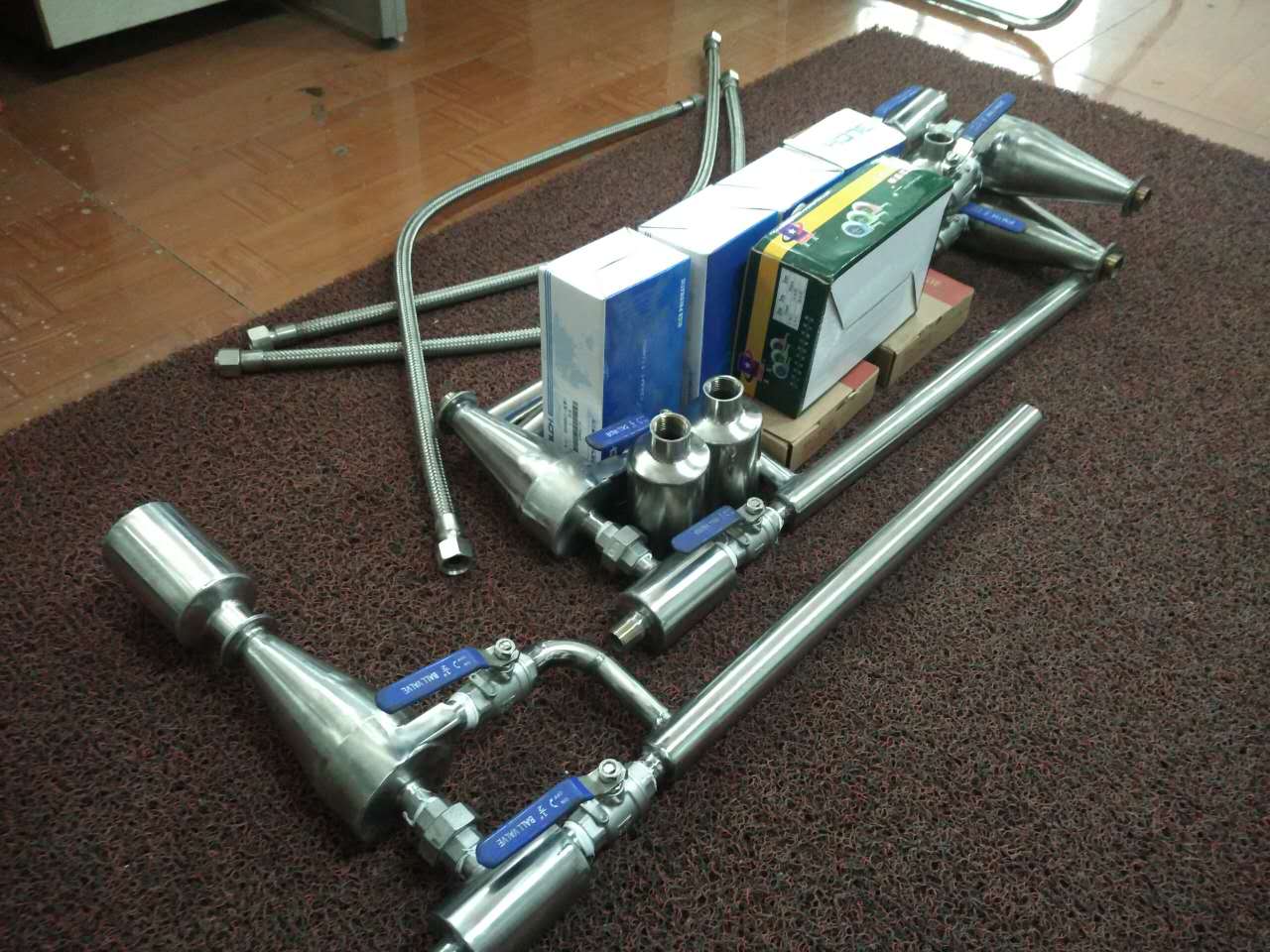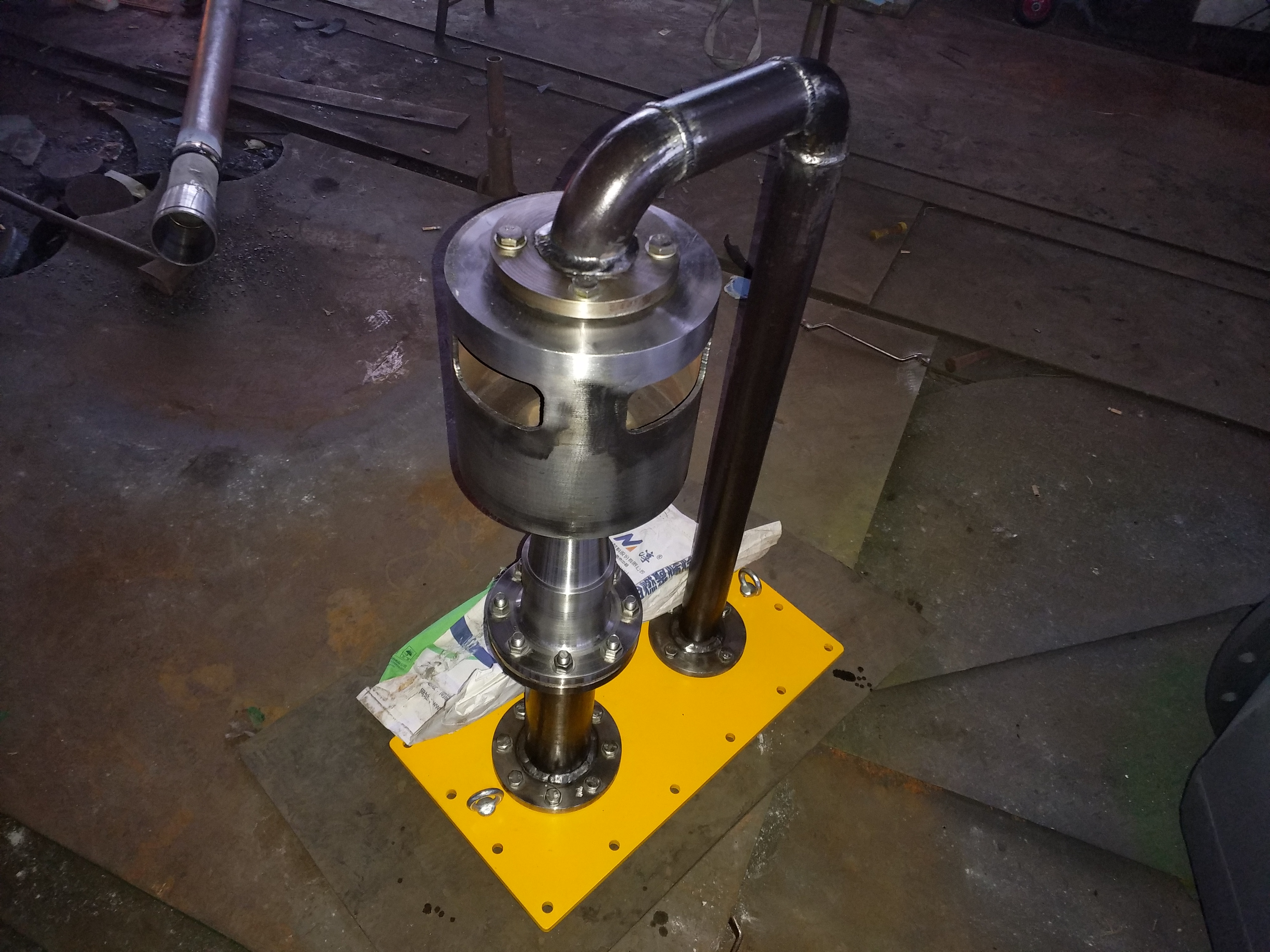Steam silencers are used for a wide range of steam emission objects in thermal equipment. Various specifications of boiler steam silencers can be designed and manufactured based on the user's extracted steam output, steam pressure, and connection size.
-Purpose
This series of steam silencers is mainly used for noise reduction of equipment such as steam emissions from boilers and fans in power, chemical, metallurgical, mining, and textile industries.
2、 Silencer--
1. The boiler fire exhaust muffler (TB type) is designed based on a reasonable sound reduction principle to suppress high-pressure steam flow emission noise. High pressure steam enters the pressure reducing body after being controlled for several times in the steam emission muffler, and after being enlarged by a large volume, forms low-pressure steam and is then sprayed out. During this process, the internal energy of the steam flow is partially converted into sound energy of a certain frequency. Although its noise power is greatly reduced, it often remains above the standard value due to reasons such as deviation from the design value of the exhaust steam. For this purpose, a double-layer sound barrier was designed outside the pressure reducing body, and the steam emission muffler was designed based on the spectrum of residual noise emitted by the pressure reducing body to effectively absorb the residual noise. When users install steam emission silencers as required, the total noise reduction can reach 36-42 decibels.
2. The steam safety valve silencer (TA type) is used for safety valves in boilers and other devices. Its exhaust should avoid excessive noise and allow the steam flow to be discharged smoothly. Therefore, the commonly seen silencing methods for partial throttling and small hole injection are not used. This limitation is not only the difficulty in designing safety valve steam emission silencers, but also the reason for the poor silencing effect of safety valve silencers. The steam emission muffler of this type of safety door also adopts the principles of resistance, spray, and resistance for noise reduction. It replaces the smaller diameter control hole with a large hole expansion. The steam emission muffler strengthens the effect of resistance to spray and resistance for noise reduction, achieving a reasonable sound reduction effect.
3. Low pressure steam muffler (TD type) is widely used in various industrial and mining enterprises. Low pressure boilers with a pressure of 13MPa and below also have a large number of low-pressure thermal devices in the power plant thermal system, such as backpressure steam turbines, deaerator and auxiliary air extractors, turbine oil pumps and boilers for continuous and periodic discharge. The exhaust pipes of the above equipment require a lightweight and easy to install steam exhaust muffler. Our company designs useful steam emission mufflers for different noise reduction objects, which can meet the requirements of users.
4. After the installation and repair of the TC type steam boiler and related thermal equipment pipelines, steam flushing and cleaning of debris inside the pipelines are required. During the blowing process, a large amount of noise will be generated. The TC type steam emission muffler adopts three silencing structures, and also suppresses noise through the principle of anti spray resistance. The steam emission muffler integrates the design of TB and TA types on the internal structure.
5. The GF type fan muffler series we produce is a noise reduction device used to reduce the aerodynamic and noise effects of fans on the environment. Used for noise reduction in the inlet and outlet ducts of various centrifugal and axial fans. The steam emission muffler series is produced as an impedance acoustic flow type. Based on the frequency spectrum data obtained from inter site testing of various types of wind turbines in power plants, determine which frequency range requires a large amount of noise reduction as the main basis for designing sound-absorbing structures and fluid channels. At the same time, narrow rectangular channels with larger material finishes are used to enhance absorption results. The noise of a fan - in areas with high noise levels, its spectral values often exceed -, and the requirements for the noise reduction of its steam emission muffler vary for different spectral bands. For this purpose, this steam emission muffler adopts a resistive structure that suppresses high-frequency noise and an impedance structure that suppresses low-frequency noise. At the same time, two types of silencing zones, high-frequency and low-frequency, are used in the resistive channel to greatly widen the silencing frequency band and achieve good silencing results. After the user installs the steam emission muffler as required, the noise limit will not exceed 85-90 decibels.
3、 Notice on Ordering Steam Silencers
1. Object of use (such as boiler fire exhaust, safety door exhaust, fan, deaerator exhaust, etc.).
2. Boiler evaporation capacity, steam pressure, temperature.
3. Steam muffler emissions: t/h.
4. The original interface pipe diameter and wall thickness.
5. As long as the technical parameters provided by the user are complete, our company can design and produce silencers of any type and specification on behalf of them.
4、 Specification for steam muffler:
1. When the specifications of the user's exhaust pipe do not match the table, the external dimensions will change;
2. There are various types of steam emission objects for thermal equipment, and various specifications of steam silencers will be designed and produced based on the user's extracted steam emission volume, steam pressure, and connection size.
Various manufacturers of injection dissipative mufflers, our full English name for injection dissipative mufflers is jetting muffler. Injection dissipative mufflers are used to control injection noise, also known as exhaust venting noise. Injection dissipative mufflers reduce noise from the perspective of sound. The types of injection dissipative mufflers used include small hole injection mufflers, throttling and pressure reducing mufflers, and hole diffusion mufflers.
1. Small hole steam injection muffler: As the peak frequency of injection noise is inversely proportional to the nozzle diameter, reducing the aperture may increase the high-frequency sound, but it is not audible to the human ear, while the low-frequency sound that can be heard by the human ear is reduced. The small hole injection muffler adopts this principle, which changes the injection of a nozzle to a small enough hole injection, moving the noise energy from low frequency to the high frequency range that is insensitive to human ears, thereby reducing interference noise while maintaining the same exhaust volume. The schematic diagram of a small hole injection muffler is shown in Figures 10-11.
-The smaller the diameter of the small hole, the greater the noise reduction of this type of small hole injection muffler- Reducing the aperture by half can increase the noise reduction by 9dB (A). For the convenience of processing and avoidance of blockages, the aperture D of the small hole should be 1-3mm. If the aperture is greater than 5mm, the noise reduction effect of the small hole will decrease and become a large hole diffuser. In addition, the distance B between each small hole should not be too small, and the small injection from each small hole should be combined into a large injection to reduce noise reduction.
The distance between hole centers can be estimated using the following equation: 10-28
2. Throttling and pressure reducing muffler: The principle of a throttling and pressure reducing muffler is to act as a throttling and pressure reducing device. It is usually composed of a series of throttling orifice plates, and the gap between adjacent orifice plates is a uniform pressure chamber. This disperses the previously large pressure drop of high-pressure gas directly injected and emptied into a small pressure drop of. Figure 10-12 shows a schematic diagram of high-pressure exhaust using a type of throttling and pressure reducing muffler, with a noise reduction value of 23dB (A).
3. Porous diffusion muffler: Porous diffusion muffler uses sintered metal or plastic, porous ceramics, layered metal wire mesh and other porous materials to reduce aerodynamic noise, as shown in Figure 10-13. The exhaust airflow is filtered into several small air streams by porous materials with a large number of small pores (pore size of 10-2 µ m), which reduces gas pressure and greatly weakens the intensity of radiation noise. At the same time, this type of porous material also has the sound absorption effect of a blocking material- The ratio of the center distance to the aperture of each small hole in a hole diffusion type muffler is relatively small, and the noise generated by the airflow behind the hole cannot be ignored. This is the difference between it and a small hole injection muffler. The outlet area of this type of muffler should be larger than the cross-sectional area of the exhaust pipe. If the diffusion area is large enough, it can achieve even greater noise reduction than the small hole injection muffler, and can achieve a noise reduction effect of 30-50dB (A).
Silencers generally consist of several parts, including exhaust pipes, connecting screws, silencing tubes, and cylinder cores. An oil immersed asbestos sealing ring is installed in the connecting screw sleeve to prevent air leakage between the exhaust pipe and the silencer. There are 7 partitions welded inside the muffler, which divide the muffler into 8 sound-absorbing chambers (7 expansion chambers and - resonance chambers). There are inverted triangular guide grooves and small holes on the core of the cylinder. When the high-temperature exhaust gas from the engine enters the muffler at high speed through the exhaust pipe, the cross-sectional area of the muffler gradually increases, the airflow expands, the flow rate decreases, and the strong pulsating noise is attenuated. When the airflow continues to flow through each expansion chamber, due to the obstruction of the partition, the airflow can only pass through the throttling on the partition and the cylinder core. As a result, the airflow is naturally compressed, divided into small streams, and then expanded. In this way, the sound energy is greatly attenuated, thereby reducing exhaust noise.
